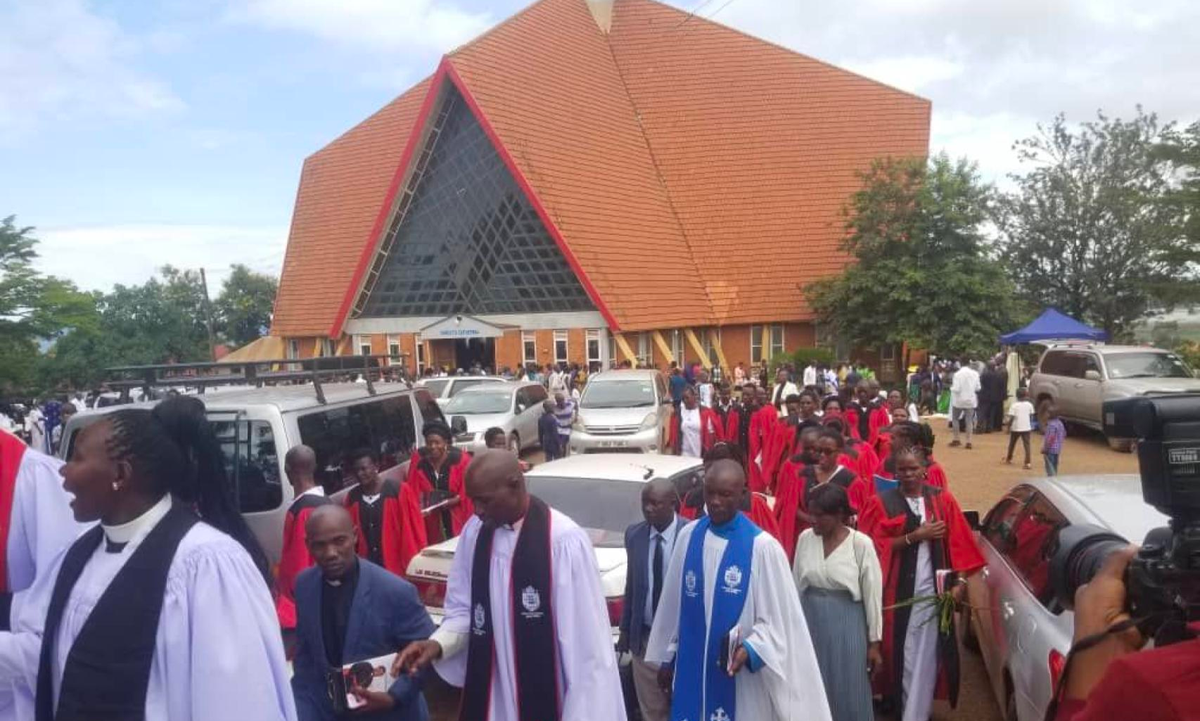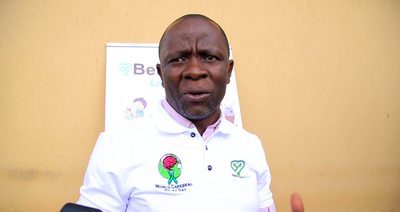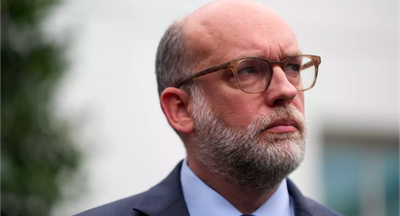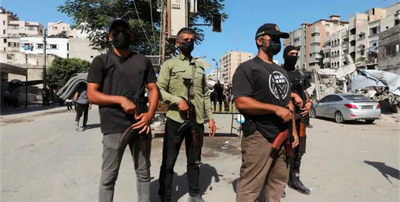
Heavy police presence was observed outside Christ’s Cathedral in Bugembe, as security forces moved to prevent potential protests surrounding the election of Grace Lubaale as the new Bishop of Busoga Diocese. Officers were positioned at the cathedral entrances, screening congregants for any materials linked to demonstrations. Others patrolled nearby roads to block any mass gatherings reportedly organized from surrounding communities.
The tension follows the House of Bishops’ recent announcement confirming Lubaale as the Bishop-elect, succeeding Paul Naimanhe, who is expected to retire this December. Lubaale’s consecration is planned for mid-December. While the announcement was anticipated to unite Christians in celebration, it has instead elicited a divided response. The cathedral has remained closed, with scores of believers camping outside in protest.
Despite Lubaale being a Musoga from Kamuli District, critics argue that his service in Kampala Province renders him “foreign” to local believers. Many contend that the House of Bishops overlooked qualified clergy within the diocese in favor of an outsider. Joan Namugere expressed frustration, saying that the names of capable reverends had been submitted but were disregarded. She remarked that although final decisions rest with senior church officials, “consultations within the diocese could have ensured a smoother process.”
Eseza Namukuve echoed this sentiment, recalling that since the era of the late Bishop Cyprian Bamwoze, Busoga Diocese has developed a strong cadre of well-trained clergy. She lamented the preference for external candidates over homegrown talent. Nevertheless, others argue that church leadership is not a political matter. They insist the process is guided by divine will, not public opinion.
Amos Isooba emphasized that “the House of Bishops, ordained by God, has the authority to shepherd the congregation,” and it is inappropriate for believers to challenge their decisions publicly. He drew parallels to biblical traditions, where leadership was determined by God, not by popular vote. Esteri Namukubembe suggested that the protests may reflect a generational divide, noting that “younger congregants are more willing to challenge established church order compared to older members.”
The controversy around the bishopric began earlier in August, when Joseph Kintu and Mathias Katiko were initially excluded from the list of candidates. Kintu faced allegations of fathering children out of wedlock, extortion, and corruption. Katiko, known for his previously celibate life, was accused of angling for the bishop’s seat after marrying late in life. Despite this, Katiko, who currently serves as diocesan administrator, remained a contender against Lubaale and was widely seen as a favorite among cathedral members.
Lubaale’s unexpected selection sparked both silence and vocal disapproval from some congregants. In response, Cathedral Dean Joy Isabirye urged believers to remain calm and to embrace Lubaale as “God’s chosen leader.” On the same note, Jinja City Resident Commissioner Richard Gulume himself a senior member of the cathedral community, defended the security deployment, calling it a necessary precaution. He urged Christians to “pray for a peaceful transition under their newly elected bishop.”
URN













Sunrise reporter
Leave a Comment
Your email address will not be published.